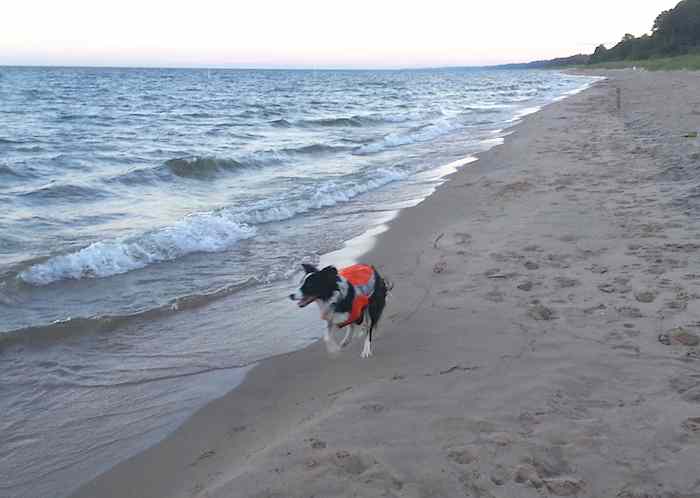A new study found that Border Collie patrols are an effective way to reduce the amount of E. coli bacteria at public beaches in Michigan.
Since the 1990s, booming gull populations around Lake Michigan have led to swim advisories and beach closings because of the abundance of E. coli bacteria in the sand and water.
A team of student researchers from Central Michigan University devised an environmentally friendly solution: They began using border collies in 2012 to chase away the congregating birds.
Two border collies, trained and experienced in chasing geese and other birds, were leased for the project, while students were trained as their handlers.
Gull droppings may contain bacteria with the potential to cause human disease, according to Elizabeth Alm, PhD, who led the two-year study and shot this photo. “Border collies are intelligent dogs that love to work and could be used by beach managers as part of a comprehensive management strategy to reduce bacterial contamination at public beaches,” said Alm.
Dogs are also being employed more widely at airports and military bases to keep large birds from congregating near air strips and threatening the safety of the air traffic. It’s a win-win situation because the dogs get to do what they like best, run freely and receive treats with a lot of love.
The research, funded in part by a grant from the U.S. Environmental Protection Agency Great Lakes Restorative Initiative, was presented as part of the 2014 General Meeting of the American Society for Microbiology held May 17-20, 2014 in Boston, Massachusetts. You can read more at the BBC.
SHARE with the buttons below if this article made you smile!




















